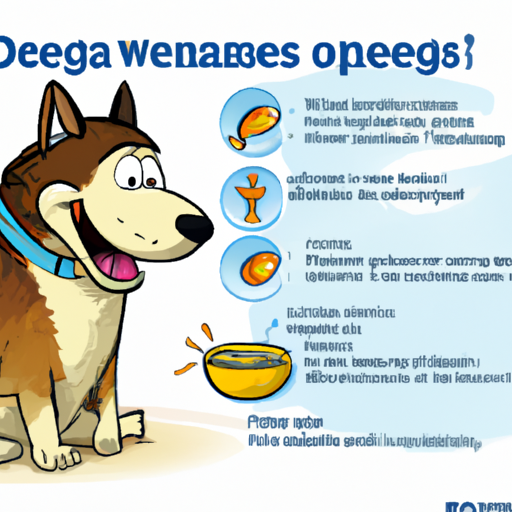Omega 3 is a term you’ve probably come across when shopping for your dog’s food or supplements. You may have heard that it’s beneficial, but what does Omega 3 actually do for dogs? The answer is a lot. This fatty acid plays a crucial role in your dog’s health and well-being, supporting everything from their skin and coat to their heart and brain. In this in-depth article, we’ll explore the numerous benefits of Omega 3 for dogs, backed by scientific research and expert advice.
Table of Contents
- Understanding Omega 3
- Benefits of Omega 3 for Dogs
- Omega 3 Dosage for Dogs
- Omega 3 Sources for Dogs
- Risks and Considerations
- Frequently Asked Questions
Key Takeaways
- Omega 3 is an essential fatty acid that promotes overall health in dogs.
- It can alleviate symptoms of allergies, support heart health, improve cognitive function, and promote a shiny coat.
- The recommended dosage depends on your dog’s weight.
- Omega 3 can be found in fish oil, flaxseeds, and certain dog foods.
- Always consult with your veterinarian before starting your dog on a new supplement.
Understanding Omega 3
Omega 3 fatty acids, specifically EPA (Eicosapentaenoic Acid) and DHA (Docosahexaenoic Acid), are essential nutrients that dogs cannot produce on their own. These nutrients are crucial for your dog’s overall health, affecting everything from their skin and coat to their heart and brain. They also play a vital role in reducing inflammation, which can help alleviate symptoms of allergies, arthritis, and other health conditions.
Benefits of Omega 3 for Dogs
1. Promotes Skin and Coat Health
Omega 3 can help keep your dog’s skin healthy and their coat shiny. It can also reduce inflammation associated with skin allergies, providing relief from itching and discomfort.
2. Supports Heart Health
Research has shown that Omega 3 can support heart health in dogs, reducing the risk of heart disease and improving overall cardiovascular function. It also aids in maintaining healthy blood pressure and reducing cholesterol levels.
3. Improves Cognitive Function
Omega 3 is crucial for brain development in puppies and can improve cognitive function in older dogs. A study found that dogs supplemented with DHA were more trainable.
4. Reduces Inflammation
Omega 3 has anti-inflammatory properties, which can help alleviate symptoms of arthritis, kidney disease, and other inflammatory conditions.
The benefits of Omega 3 are extensive and can be explored further in this article.
Omega 3 Dosage for Dogs
The recommended dosage of Omega 3 for dogs depends on their weight. The general rule of thumb is to give 20 milligrams of EPA per pound of body weight.
Omega 3 Sources for Dogs
Omega 3 can be found in fish oil, flaxseeds, and certain dog foods. Fish oil is a popular choice due to its high concentration of EPA and DHA.
Risks and Considerations
While Omega 3 is generally safe for dogs, it’s always best to consult with your veterinarian before starting your dog on a new supplement. Overdosing can lead to health complications like diarrhea and blood clotting issues.
Frequently Asked Questions
1. Can I give my dog human Omega 3 supplements?
While human and dog Omega 3 supplements are similar, it’s best to use products specifically designed for dogs. Human supplements may contain higher doses that could be harmful to dogs.
2. How long does it take for Omega 3 to work in dogs?
You may start noticing improvements in your dog’s skin and coat within a few weeks. However, other benefits, like reduced inflammation, may take a few months to become apparent.
3. Can puppies take Omega 3?
Absolutely. In fact, Omega 3 is crucial for brain development in puppies.
You can find more information about your dog’s nutrition here, including how to choose the right food and supplements for your pup.
So, what does Omega 3 do for dogs? It promotes their overall health, supporting everything from their skin and coat to their heart and brain. But as with any supplement, it’s important to consult with your veterinarian before making any changes to your dog’s diet.
For more tips on keeping your dog healthy and happy, check out our other articles.



